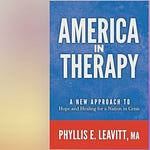When a potential customer raises an objection, most salespeople panic. They get defensive, start justifying, or worst of all—immediately offer discounts. But what if objections are actually the key to closing more deals?
That's the counterintuitive wisdom I uncovered in my conversation with Phil Whitebloom, a sales veteran who has personally driven over $1.5 billion in career sales and led teams across the Americas. According to Phil, objections aren't roadblocks—they're signposts pointing directly to what matters most to your prospect.
"If you didn't come up against an objection, was somebody actually really listening? Were they even interested at all?" Phil challenged during our interview. "Because when they're following the details is when they're going to give you an objection."
This perspective flips the traditional sales mindset on its head. Rather than dreading objections, top performers welcome them as critical insights into what's truly important to their prospects.
The Most Powerful Takeaways from Our Conversation:
Objections are clues, not obstacles: When someone objects, they're revealing what matters most to them. Address that effectively, and you've overcome their biggest concern.
The fatal mistake of being "in your head": Phil emphasized that salespeople must "get out of their own head" and focus completely on the prospect. When you're thinking about your quota or commission rather than truly listening, you miss critical information.
High-impact questions unlock everything: Instead of responding defensively to "it costs too much," ask: "Could you share more about that? Are you relating this to something you purchased earlier, or is it over your budget?" Then—crucially—stop talking and listen.
There's a proven process: Acknowledge the objection, ask questions to understand it fully, provide your response, and then offer a "trial close" to see if you've addressed it successfully.
Focus on relationships, not transactions: "It's not about just taking people to lunch and being nice to them," Phil explained. "It's about really understanding where their needs are at a very deep level... when they trust you, they're going to do business with you."
What struck me most was Phil's example of working with a client who needed to hire better salespeople. On the surface, this seemed straightforward—until Phil dug deeper and discovered the client's true motivation: selling his company for maximum value in 10 years. By uncovering this deeper objective, Phil could provide far more valuable help than simply filling a sales position.
These insights merely scratch the surface of Phil's 40+ years of sales wisdom. His book, "Handling Objections: Cues for Closing the Sale," provides a comprehensive framework that transforms objections from feared roadblocks into welcome stepping stones toward successful deals.
Watch the full interview to discover:
The step-by-step process for handling any objection
How to use "trial closes" without risking rejection
Why truly understanding objections leads to larger deals
The surprising way Phil's sales techniques helped someone navigate their divorce
WATCH THE FULL INTERVIEW HERE ON YOUTUBE
P.S. Phil shared one unexpected tip that's too good not to mention: When a prospect raises an objection and you respond with a question, the most powerful thing you can do next is... nothing. Be quiet. Let them talk. The silence might feel uncomfortable, but it's in those moments that prospects reveal their true concerns and motivations. Master this technique, and you'll close deals your competitors can't even dream of.













Share this post